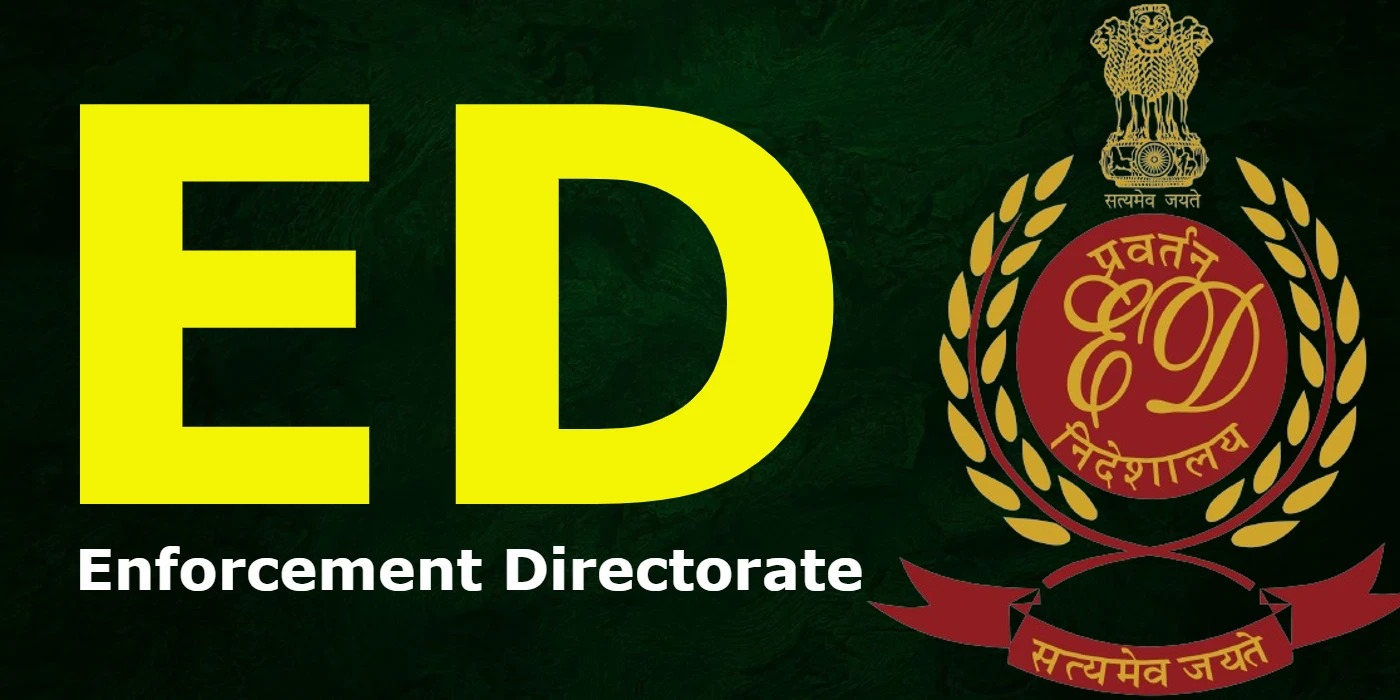R.R. Prasad
1. A Vigilance case had been registered against the then Chief Minister and some of the Ministers for the commission of the offences under Sections 409, 420, 423, 424, 465 and 120(B) of the Indian Penal Code and also under Sections 7, 10, 11 and 13 of the Prevention of Corruption Act. Subsequently, on the basis of the allegation made in the Vigilance case, Enforcement Directorate lodged an Enforcement Case Information Report (ECIR) against them after being satisfied prima facie that materials are there to form an opinion that the offence of Money Laundering Act has been committed by Madhu Koda, the then Chief Minister and six other accused persons including Binod Kumar Sinha.
2. In course of investigation, it transpired that the petitioner, being one of the co-associates of Binod Kumar Sinha and Bikash Sinha has actively involved himself in the offence of Money Laundering with Binod Kumar Sinha and Bikash Sinha also accused of offence of Money Laundering.
3. During investigation, the Investigating Officer made an application before the special court praying therein for issuance of non-bailable warrant against the petitioner and six others describing them to be accused in the case. Accordingly, warrant of arrest was ordered to be issued. That order was challenged by this petitioner in Cr.M.P. No. 1219 of 2010. Since other accused had also challenged that order, vide Cr.M.P. No. 1209 of 2010, both were heard together.
4. The contention which was raised before this Court at the time was that the petitioner was being treated as witness but suddenly, the petitioner was put to the category of accused and under the circumstances, he could not explain before the Enforcement Directorate about his innocence.
5. However, it was the stand of the Enforcement Directorate that the petitioner has been evading his appearance and that the Investigating Officer has found prima facie materials against the petitioner for putting him on trial for the aforesaid offence.
6. Both the applications were disposed of by the common order with the following observation/direction.
i. The petitioners shall appear before the learned court below within eight weeks from the date of this order in the event they are cited as accused and charge sheet is filed against them.
ii. During this period, petitioners shall report at the office of the Directorate of Enforcement on the dates on which they are called upon to appear and extend full cooperation in the investigation made by the Directorate of Enforcement.
iii. In order to enable the petitioners to appear before the investigating agency, the warrants of arrest issued against the petitioners, shall not be executed till the expiry of the above stipulated period of eight weeks.
iv. Upon the petitioners'' appearing before the Directorate of Enforcement/ investigating agency, they shall have the right to seek presence of lawyer or legal adviser or any near relative at the time of their interrogation by the investigating officer.
v. The petitioners shall not be subjected to any third degree treatment or any physical or mental harm by the investigating officer in course of interrogation.
vi. The petitioners shall be at liberty to seek anticipatory bail before the appropriate forum.
7. Pursuant to that order, according to the case of the petitioner, the petitioner did appear before the Enforcement Directorate on 20.10.2010 and then 21.10.2010, 22.10.2010 and even on 23.10.2010. Thereafter the petitioner was never called upon by the Investigating Officer to make statement or to produce any document. In spite of that, the investigating officer filed an application on 15.1.2012 before the Special court praying therein to issue proclamation u/s 82 of the Code of Criminal Procedure against the petitioner and four other persons taking the ground that they did not appear before the court despite the issuance of non-bailable warrant of arrest against them. On such application, the court vide its order dated 25.1.2012 issued process u/s 82 of the Code of Criminal Procedure which is under challenge in this application.
8. Mr. Pandey Neeraj Rai, learned counsel appearing for the petitioner submitted that the petitioner in obedience of the order passed by this Court appeared before the Directorate of Enforcement on 20.10.2010, 21.10.2010, 22.10.2010 and even on 23.10.2010 but only on 20.10.2010 statement of the petitioner was recorded and thereafter the petitioner was never called upon to appear either to make statement or to file document. In such situation, when the petitioner was extending all co-operation to the Enforcement Directorate in the matter of investigation, it was wholly unwarranted on the part of the Enforcement Directorate to get process issued u/s 82 of the Code of Criminal Procedure and hence, the said order under which process has been issued is fit to be quashed.
9. As against this, Mr. Das, learned counsel appearing for the Enforcement Directorate submitted that pursuant to the order passed by this Court, the petitioner did appear before the Directorate on 20.10.2010, on which date the petitioner did submit written submission whereby it was disclosed the name of the companies in which he was the Director. On the next date, i.e. on 21.10.2010, the petitioner when was appeared, again his statement was recorded. Thereafter he was asked to report on 29.10.2010 when the petitioner undertook to furnish certain information. On that date, certain documents were filed but statement could not be recorded. Thereupon when the petitioner did not make any response, the Investigating Officer got the process issued u/s 82 of the Code of Criminal Procedure and when the Investigating Officer came to the residence of this petitioner to serve the proclamation order, wife of the petitioner disclosed that she does not know whereabouts of his husband since last one year and refused to receive the said order. Thereupon the proclamation order was read over to her and then it was pasted over the gate of the said premises. In this situation, when the order of proclamation has already taken its effect, the said order never warrants to be quashed. Having heard learned counsel appearing for the parties, it does appear that earlier when an order was passed for issuance of warrant of arrest, that was challenged before this Court. Operation of the warrant of arrest was stayed for eight weeks by this Court, vide order dated 27.9.2010 passed in Cr.M.P No. 1219/1209 of 2010. During which the petitioner was directed to appear before the Enforcement Directorate as and when called upon for the purpose of investigation. At the same time, liberty was also given to the petitioner to seek anticipatory bail before the appropriate forum. Pursuant to that direction, the petitioner did appear before the Enforcement Directorate and also submitted written statement. According to the petitioner, he also appeared for three more dates but thereafter the petitioner was never called upon by the Enforcement Directorate. But the stand which has been taken by the Enforcement Directorate is that the petitioner did appear on 20.10.2010 and 21.10.2010 and was asked to submit certain documents on 29.10.2010 on which date, he appeared but the examination of the petitioner remain unconcluded. Thereafter it is controversial as to whether the petitioner was called or not for taking his statement. But fact remain that after expiry of eight weeks, warrant of arrest issued earlier became operative after 20.11.2010. Thereupon at the instance of the Investigating Officer, process u/s 82 of the Code of Criminal Procedure was issued which having been read over to the wife of the petitioner was pasted over the gate and as such, it has already taken its effect. In this situation, the prayer made by the petitioner in this application for quashing of the order under which process has been issued never seems to be tenable and hence, the instant application stands dismissed.

